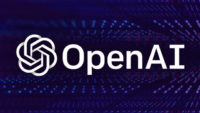OpenAI Previews New LLMs Capable of Complex Reasoning
September 16, 2024
OpenAI is previewing a new series of AI models that can reason and correct complex coding mistakes, providing a more efficient solution for developers. Powered by OpenAI o1, the new models are “designed to spend more time thinking before they respond, much like a person would,” and as a result can “solve harder problems than previous models in science, coding, and math,” OpenAI claims, noting that “through training, they learn to refine their thinking process, try different strategies, and recognize their mistakes.” The first model in the series is being released in preview in OpenAI’s popular ChatGPT and in the company’s API.
OpenAI o1 “can produce a long internal chain of thought before responding to the user,” OpenAI explains in a scientific paper called Learning to Reason with LLMs, which finds that “the performance of o1 consistently improves with more reinforcement learning (train-time compute) and with more time spent thinking (test-time compute).”

While this early iteration “doesn’t yet have many of the features that make ChatGPT useful, like browsing the web for information and uploading files and images, for many common cases GPT-4o will be more capable in the near term,” OpenAI notes in an introductory post.
For instance, it can potentially help curb AI hallucinations. “For complex reasoning tasks this is a significant advancement and represents a new level of AI capability.” In light of that, OpenAI has reset “the counter back to 1,” hence the name OpenAI o1, with an ‘o,’ for omni, instead of a zero — as in GPT-4o.
“If you’re steeped in AI rumors: this is, in fact, the extremely hyped Strawberry model,” The Verge reports, adding that it represents a move toward the company’s goal of “human-like artificial intelligence.” While better at writing code and solving multistep problems, “it’s also more expensive and slower to use than GPT-4o.”
In a demo for The New York Times, the new chatbot solved an acrostic, a word puzzle “that is significantly more complex than an ordinary crossword puzzle,” correctly responded to “a Ph.D.-level chemistry question and diagnosed an illness based on a detailed report about a patient’s symptoms and history.”
The advances are “part of a wider effort to build AI that can reason,” NYT reports, adding that “companies like Google and Meta are building similar technologies, while Microsoft and its subsidiary GitHub are working to incorporate OpenAI’s new system into their products.”
Related:
OpenAI Announces a New AI Model, Code-Named Strawberry, That Solves Difficult Problems Step by Step, Wired, 9/12/24
OpenAI Releases “Strawberry” Model with Better Reasoning, Axios, 9/12/24

No Comments Yet
You can be the first to comment!
Leave a comment
You must be logged in to post a comment.